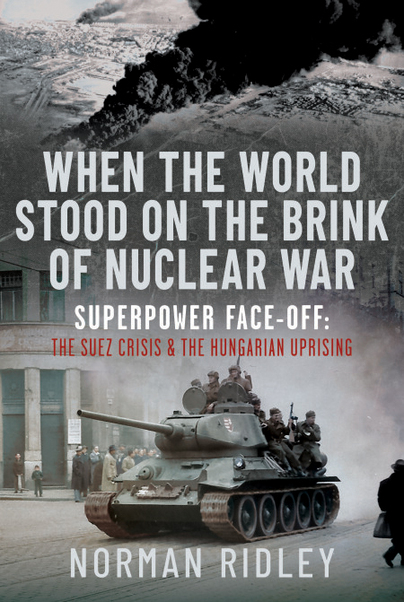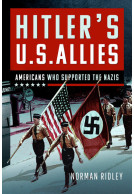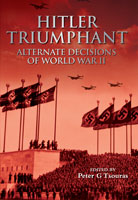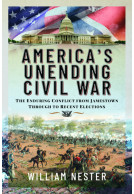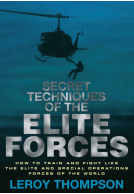Google Books previews are unavailable because you have chosen to turn off third party cookies for enhanced content. Visit our cookies page to review your cookie settings.
When The World Stood on the Brink of Nuclear War (Hardback)
Superpower Face-off: The Suez Crisis and the Hungarian Uprising
By
Norman Ridley

Pages: 256
Illustrations: 16 mono illustrations
ISBN: 9781036130237
Published: 30th October 2025

Pages: 256
Illustrations: 16 mono illustrations
ISBN: 9781036130237
Published: 30th October 2025
You'll be £17.60 closer to your next £10.00 credit when you purchase When The World Stood on the Brink of Nuclear War. What's this?
+£4.99 UK Delivery or free UK delivery if order is over £40
(click here for international delivery rates)
Order within the next 9 hours, 52 minutes to get your order processed the next working day!
Need a currency converter? Check XE.com for live rates
(click here for international delivery rates)
Order within the next 9 hours, 52 minutes to get your order processed the next working day!
Need a currency converter? Check XE.com for live rates
The post-war world was dominated by the U.S.A. and the U.S.S.R., but the events of 1956 exposed their limitations. On 22 October 1956, following Egyptian leader Gamal Abdel Nasser’s nationalisation of the Suez Canal, British Prime Minister Anthony Eden secretly met with French and Israeli leaders in Sevres, France. They agreed that Israel would invade Egypt, with Britain and France intervening under the guise of peacemaking to secure control of the canal and topple Nasser.
On 23 October, far from the Middle East, hundreds of thousands of protesters in Budapest opposed Soviet occupation, tearing down Stalin statues. The uprising escalated as the Soviet Red Army intervened, leading to twelve days of violence, thousands killed or injured, and 250,000 Hungarians fleeing their country. Britain and France withdrew from the Suez after nine days of fighting, their ambitions thwarted by international pressure and canal closure.
The U.S. and U.S.S.R. struggled to influence these events. The U.S., preoccupied with domestic elections and the threat of Soviet nuclear retaliation, could not support Eastern European movements. Soviet actions during the Hungarian uprising weakened their global image.
Norman Ridley’s analysis reveals how these crises highlighted the limitations of superpower influence. Despite their nuclear strength, the U.S.A. and U.S.S.R. faced challenges they could not overcome, showing their mutual struggles in shaping the post-war world order.
There are no reviews for this book. Register or Login now and you can be the first to post a review!
About Norman Ridley
NORMAN RIDLEY is an Open University Honours Graduate who writes about the less well covered aspects of 20th Century history. He lives in the Channel Islands.
More titles by Norman Ridley
Other titles in Frontline Books...







